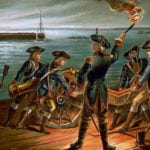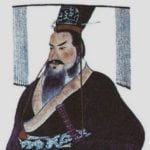 Weird Stuff
Weird Stuff  Weird Stuff
Weird Stuff  Food
Food 10 Modern Delicacies That Started as Poverty Rations
 Movies and TV
Movies and TV 10 Shared TV Universes You’ve Likely Forgotten About
 Weird Stuff
Weird Stuff 10 of History’s Greatest Pranks & Hoaxes
 Miscellaneous
Miscellaneous 10 LEGO Facts That Will Toy with Your Mind
 Misconceptions
Misconceptions 10 Widespread Historical Myths and the Texts That Started Them
 Crime
Crime 10 Incredible Big-Time Art Fraudsters
 Movies and TV
Movies and TV 10 Most Influential Fictional Objects in Cinema History
 Our World
Our World Top 10 Real Almost‑Cities That Never Materialized
 Technology
Technology 10 Unsettling Ways Big Brother Is (Likely) Spying on You
 Weird Stuff
Weird Stuff The 10 Unluckiest Days from Around the World
 Food
Food 10 Modern Delicacies That Started as Poverty Rations
 Movies and TV
Movies and TV 10 Shared TV Universes You’ve Likely Forgotten About
Who's Behind Listverse?

Jamie Frater
Head Editor
Jamie founded Listverse due to an insatiable desire to share fascinating, obscure, and bizarre facts. He has been a guest speaker on numerous national radio and television stations and is a five time published author.
More About Us Weird Stuff
Weird Stuff 10 of History’s Greatest Pranks & Hoaxes
 Miscellaneous
Miscellaneous 10 LEGO Facts That Will Toy with Your Mind
 Misconceptions
Misconceptions 10 Widespread Historical Myths and the Texts That Started Them
 Crime
Crime 10 Incredible Big-Time Art Fraudsters
 Movies and TV
Movies and TV 10 Most Influential Fictional Objects in Cinema History
 Our World
Our World Top 10 Real Almost‑Cities That Never Materialized
 Technology
Technology 10 Unsettling Ways Big Brother Is (Likely) Spying on You
10 Rogue Spies In History
When a highly trained spy begins working outside of the usually accepted rules, the consequences can be very dangerous indeed. Some of the men on this list sought only to line their own pockets. Others tried to continue serving their country in their own unorthodox way. All created serious tremors in the shadowy world of espionage.
10Edwin P. Wilson
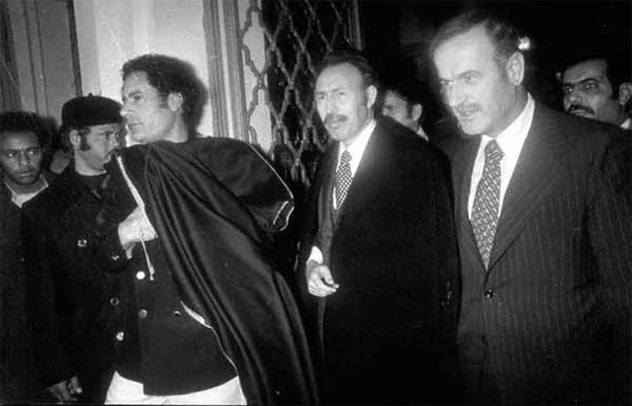
In 1955, Edwin P. Wilson was just another grunt flying home after serving in the final days of the Korean War. As the plane crossed the Pacific, he struck up a conversation with the passenger sitting beside him. When he mentioned that he was looking for work, the man suggested that he might consider a career in the CIA and gave him a phone number to call. He did not mention his own name and Wilson never saw him again. A few weeks later, Wilson was starting his new job as a CIA agent.
He served with distinction for two decades, at one point breaking into a hotel to release cockroaches into the rooms of a Soviet labor delegation. But his main specialty became setting up front corporations and maintaining the CIA’s clandestine business interests. In 1976, he officially left the CIA to enter the private sector—and that’s when things get really murky. Wilson’s new business was arms dealing and it made him a very rich man. The farmer’s son from Idaho became an international playboy, jetting between luxury homes around the world and entertaining generals and politicians at his estate in northern Virginia.
Wilson’s main client was the Libyan regime of Muammar Gadhafi, then accused of sponsoring terrorist activities in Europe and the Middle East. Wilson didn’t seem bothered, funneling millions of dollars in arms to Libya and hiring ex-Green Berets to teach Gadhafi’s spies how to make bombs disguised as lamps and radios. A pistol he personally supplied was used to murder a Libyan dissident in Switzerland, one of the few acts he later admitted feeling guilty about. Then, in 1977, he arranged to sell the Libyans 20 tons of C-4 plastic explosives—an amount almost equal to America’s entire stockpile. To obtain the explosives without too many awkward questions, he told manufacturers that he was still working for the CIA.
It was the last straw. In 1982, he was lured to the Dominican Republic, seized, and flown to America to face trial. In prison he managed to dig himself even deeper when he was recorded offering another prisoner $50,000 a head to kill the prosecutor, six witnesses, and his wife. Wilson’s defense of the arms dealing charges was simple: He claimed he had been working for the CIA the whole time. High-ranking CIA officials took the stand to testify that the agency had had no contact with him since he left, and Wilson was convicted.
Then, in 2003, Wilson’s lawyers used newly released documents to appeal his case. A Texas judge found that he had probably been acting under orders and overturned his conviction. He died, old and bitter, in 2012. Historians continue to debate exactly how much the CIA knew about his activities.
9Jean Grombach
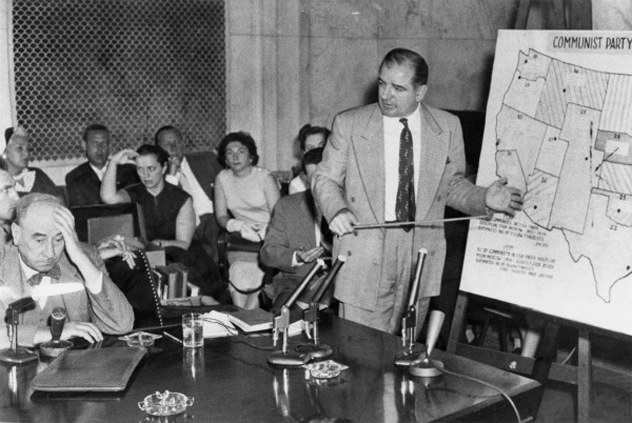
Jean “Frenchy” Grombach spent his life obsessed with secrecy. The son of the French consul in New Orleans, he became an American citizen at age 18, the year he enrolled at West Point. He spent a decade in the military, including the army’s G2 intelligence department, before retiring to become a radio producer. But it was during World War II that he really found his calling. At that time, US intelligence was in the hands of the flamboyant “Wild Bill” Donovan and his Office of Strategic Services (OSS). To Grombach, who had reenlisted, such a larger-than-life approach was anathema.
Instead, he proposed the creation of a truly clandestine secret agency. Unlike the OSS and its successor, the CIA, Grombach’s organization would be not just officially secret, but actually secret. The only people who would know of its existence were the President and a few trusted generals and advisers. Off the books, the agency could carry out operations with total deniability and minimal oversight. It didn’t even have a name, just an informal nickname, “the Pond.”
In 1942, Grombach got the go-ahead to found his agency. Many of the Pond’s activities remain mysterious to this day, but what is known is that Grombach instantly caused friction with his odd belief that “intelligence is the gathering of data on selected subjects without regard to correctness.” Still chasing the dream of total independence, Grombach was outraged to discover that his reports were still vetted by superiors, who rejected 80 percent of them as inaccurate. He became convinced that the US government had been infiltrated by communist agents.
In 1951, disaster struck. The Pond was ordered to begin reporting to the CIA, which Grombach believed was a bastion of communist spies. His suspicions were seemingly confirmed when the CIA started rejecting most of the Pond’s intel as unreliable hearsay. In response, Grombach went rogue. He began passing sensitive information to Senator Joe McCarthy, including a list of agents he believed to be Russian moles, which McCarthy used to publicly attack the CIA.
But in the CIA, Grombach had finally met an opponent as devious as himself. They began feeding disinformation to the Pond in the hopes that Grombach would pass it on to McCarthy, who would be humiliated when it was proven false. That completed, the CIA unceremoniously pulled the plug. The Pond carried out its last operation in 1955. Grombach, thoroughly burned, failed to find further work in intelligence gathering.
8Philip Agee
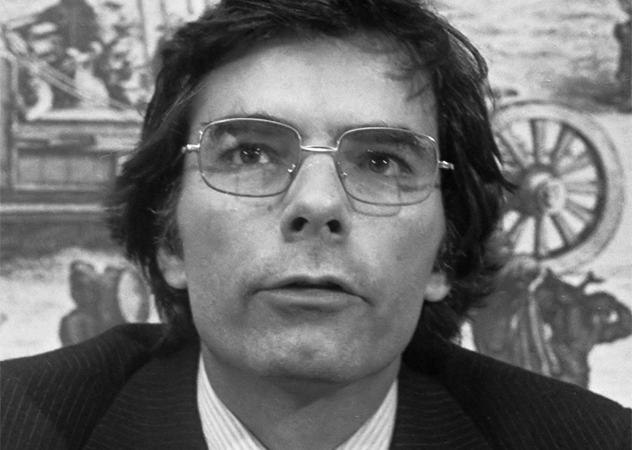
Was Philip Agee an honorable man, a dedicated whistleblower who sought to expose CIA corruption and immorality? Or was he a traitor, a ruthless stooge of the KGB who thought nothing of putting his former colleagues in harm’s way? The debate has colored all descriptions of Agee’s life, yet whatever your conclusions, the hard facts are themselves extraordinary.
Agee joined the CIA in 1957 and spent 12 years with the agency, mainly in South America. An idealistic young man, he soon grew shocked and appalled by the CIA’s morally bankrupt actions in the region—including support for right wing death squads. The agency’s tacit support of the 1968 massacre of student protesters in Mexico City solidified his belief that the US intelligence community had become a force for evil. When he fell in love with a Brazilian named Angela who had been tortured and imprisoned in her home country, his mind was made up. He resigned from the CIA, moved to Britain, and began a relentless campaign to reveal the inner workings of the agency.
Agee’s 1975 book, Inside the Company: CIA Diary, revealed the identities of over 250 undercover agents. Many writers have linked the revelations to the murder of US diplomat and spy Richard S. Welch, who was killed by Greek communists later that year, although others have pointed out that Welch was not actually among the agents named by Agee. Harder to explain away were his links to Cuban intelligence, who funded his early literary ventures.
Agee has always insisted that his links to Cuba began only after he left the CIA, and were motivated by his desire to expose US corruption rather than bribery. Agee’s place in history now seems to depend on where you stand politically—his obituary in the Guardian described him as motivated by a “mixture of commitment and romance,” while the Telegraph repeated the claims that he had been paid up to $1 million by Cuba.
7Arthur Owens
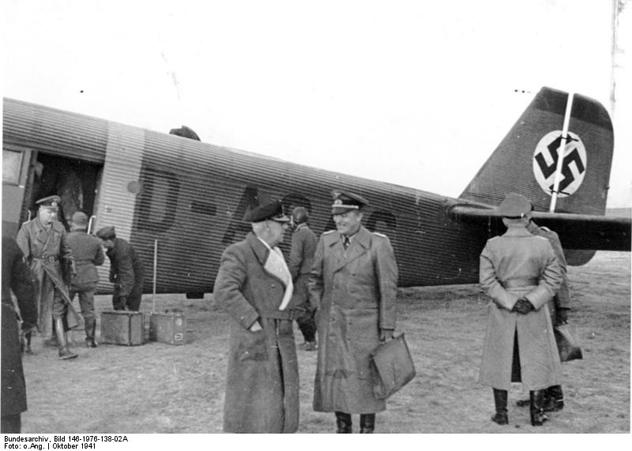
Unlike Agee, there isn’t much room for debate about Arthur Owens’ motives—he once bluntly informed a fellow spy that he was double crossing everybody and only cared about making money. A proud Welsh nationalist, Owens founded a company that made batteries for ships, and had business dealings with several European navies. In 1938, he was contacted by Germany’s Abwehr naval intelligence agency and asked to become a spy. The Abwehr thought that Owens’ patriotism would encourage him to work against the hated English, but as it turned out he was more interested in money and women. In exchange for a steady supply of both, he agreed to become a spy for the Nazis.
Unbeknownst to the Abwehr, this actually wasn’t Owens’ first experience in the world of espionage. Two years earlier he had actually obtained German naval secrets on behalf of the Soviets. Now, he began making plans to betray his new employers. A few months after his meeting with the Abwehr, Owens went to the British authorities, told them where to find the radio transmitter the Germans had smuggled him, and offered to become a double agent. After briefly throwing him in prison, they accepted.
By 1940, Owens had become one of the Abwehr’s most trusted agents—almost all of the spies the Nazis parachuted into Britain were sent to see him. Of course, Owens immediately betrayed them to the British, who then gave them a choice between being executed or becoming double agents themselves. But MI5 still wasn’t particularly happy with Owens, who they suspected was secretly playing both sides and selling classified British information. They may have been right—on a trip to Lisbon, another spy was seized and taken to Germany under suspicion of being a double agent while Owens was returned unharmed.
After the Lisbon incident, MI5 decided that they couldn’t take the risk and imprisoned Owens. He still found a way to make some cash, spying on German prisoners for his old employers. Ultimately, the Welshman would have the last laugh. After the war, he succeeded in blackmailing MI5 into paying him wrongful arrest compensation by threatening to write a book about his career if they didn’t.
6Alexander Keith Jr.

As the nephew and namesake of a legendary Canadian beer magnate, Alexander Keith Jr. could probably have expected a comfortable, if fairly uneventful, life. But when his uncle gave him a job in his gunpowder business, Keith began skimming the profits for himself, setting off a huge explosion in the gunpowder magazine to cover his tracks.
During the American Civil War, Keith found his true calling—he became an agent and fixer for Confederate spies based in Canada. He quickly showed a knack for espionage, developing a bewildering range of codes and secret handshakes, and devising operations against American targets along the border. In a plan we’ve talked about before, Keith and Dr. Luke P. Blackburn plotted to spread Yellow Fever throughout the US by smuggling the clothes of deceased patients across the border.
But unbeknownst to his Confederate spymasters, Keith was loyal to nobody but himself, and he soon began ripping his bosses off with every chance he got. At one point Keith arranged to buy the same locomotive for three different Confederate groups, pocketing the money from two of them. When the train was to be delivered from America, Keith tipped off the Union authorities, who seized it at the border.
When the war finished, Keith found his source of income cut off and was forced to flee Canada. In Europe, he decided to take his fraudulent activities to a new and horrifying level—by blowing up the German steamship Mosel to collect insurance money on non-existent cargo. By posing as Russian and Jamaican businessmen, he was able to obtain the parts needed to make a time bomb, which he hid in a wooden barrel. But the plan went terribly wrong when dockworkers dropped the barrel as they were loading it on board and the bomb went off, killing 81 people.
Keith, who had witnessed the explosion and the carnage that followed it, immediately drew a pistol and shot himself in the head twice. It didn’t work out quite as he’d hoped—he died in agony days later. In a final, brutal irony, Keith had been unable to obtain most of the insurance he’d been hoping to claim when the Mosel went up. Eighty-one people were killed for only about £150.
5Morris “Two-Gun” Cohen
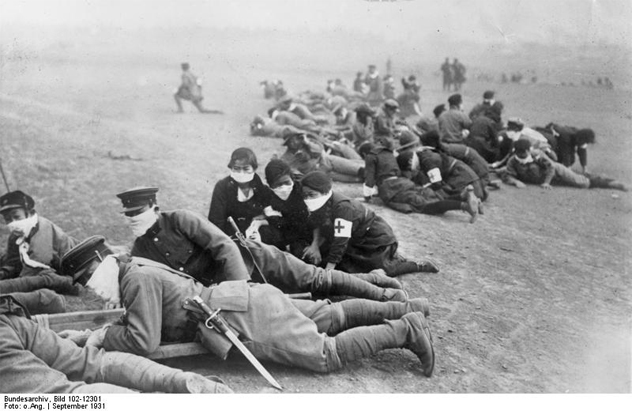
It was 1909, in Saskatoon, Canada, when Morris Cohen walked into a local Chinese restaurant to find an armed man robbing the place. Cohen, a former boxer, immediately punched the man to the floor and threw him into the street. It was an act that would change his life.
Morris “Two-Gun” Cohen was born in London’s tough East End. At 18, his parents, concerned about their street-brawling son, arranged for him to emigrate to a Jewish farm settlement in Manitoba, Canada. Within a few months Cohen had run off to join a traveling circus, eventually washing up in Saskatoon, where he became a con artist and occasional jailbird. It was there that he walked into that restaurant.
The local Chinese community, shocked that a white man had come to their rescue, quickly adopted Cohen as one of their own. He became particularly close to the restaurant’s owner, the gambler and opium merchant Mah Sam, who inducted him into the Tongmenghui, a secret society founded by the Chinese revolutionary Sun Yat-Sen. In 1922, Cohen sailed out to China, where he quickly talked his way onto Sun’s personal bodyguard. Despite being famously bad at both Mandarin and Cantonese, he also began running spies. He acquired the nickname “Two-Gun,” after being shot in the arm during a pitched battle in Shanghai. Concerned by the close call, Cohen taught himself to shoot with both hands, and thereafter always carried a pair of guns.
Sun Yat-Sen died of cancer in 1925, but Cohen continued to work for a succession of Southern Chinese warlords. After the Japanese invaded China in 1937, Cohen was approached to become a spy for the British. Among his more memorable achievements was exposing Japanese poison gas stocks in Manchuria. He continued to work in this capacity until the Japanese overran Hong Kong, when he was captured, imprisoned, and tortured. Released as part of a prisoner exchange in 1943, he returned to a hero’s welcome from Canada’s Chinese and Jewish communities.
4Henri Dericourt

Trying to lead the life of a double agent—spying for one country while pretending to spy for another—is complicated enough, but Henri Dericourt was prepared to go one step further and become one of history’s rare triple agents. A test pilot from the north of France, Dericourt escaped to England after the Nazi invasion. Regarded with suspicion by the MI5 counterintelligence service, Dericourt was nonetheless recruited by the Special Operations Executive (SOE) to be parachuted back into occupied France, where he was to run an escape network for British airmen.
Dericourt seemed to perform his task admirably, but the French Resistance soon noticed that undercover agents known to him had a higher-than-usual chance of being arrested. Investigating further, they were shocked to see Dericourt meeting with German agents. The SOE initially refused to believe these reports, but the real bombshell came after the war ended. German documents revealed that Dericourt had been secretly working as a Nazi double agent.
A high-profile trial was scheduled, and Dericourt’s conviction seemed certain—until a second bombshell was dropped. Dericourt’s SOE handler, Nicholas Bodington, testified that he had authorized all of the Frenchman’s contacts with the Nazis. Furious senior SOE officers insisted that they had known nothing of the plan, and yet further investigation into Bodington’s actions was blocked by the British government.
It gradually became clear that Bodington and Dericourt had actually been working for an even more secretive organization—MI6. They had been planted into the unsuspecting SOE as a better cover for their mission against the Germans. The men Dericourt had betrayed to the Nazis were regarded as expendable. Dericourt was acquitted, but his reputation was destroyed. He was killed in 1961, when his aircraft crashed over Laos.
3Michael Furlong

The only case on this list still not fully resolved, Michael Furlong was a senior civilian official with the US Air Force. In 2010, the New York Times reported that Furlong had been running an unauthorized secret espionage network in Afghanistan and Pakistan. A subsequent Pentagon investigation found that Furlong had set up a group of shell companies run by Lockheed Martin, which paid $22 million to a network of private agents throughout the region. Furlong’s agents gathered information on enemy positions and movements, some of which was apparently used to plan drone strikes and other attacks. The use of private contractors to carry out spying activities is against Pentagon rules.
For his part, Furlong insisted that his network had been approved by senior officers in Afghanistan and accused the Pentagon of treating him to a kangaroo court. It wasn’t Furlong’s first brush with espionage—in 2008 he was expelled from Prague for setting up an unauthorized propaganda operation. Some observers have suggested that Furlong’s network may even have been exposed by the CIA, who were supposedly concerned at the implications of the military taking intelligence-gathering into their own hands.
2George Blake

When asked, in later years, how he could betray his country, George Blake simply laughed, “To betray, you first have to belong. I never belonged.” Born in Rotterdam to a Dutch mother and an Egyptian-Jewish father, Blake escaped to London disguised as a monk during World War II. In England he began working for MI6 and became a British citizen. He fell in love with a local girl, but her family prevented the marriage because Blake was Jewish. Instead, MI6 sent him to Korea, where he was supposed to establish an intelligence network.
Captured when the communists overran Seoul, Blake apparently became a Marxist while imprisoned in North Korea. Welcomed back as a hero by MI6, Blake was promoted to work as a case officer in Berlin. Unbeknownst to them, he had actually made contact with the KGB and offered to become an agent. Over the next six years, he betrayed hundreds of British agents to the Russians, many of whom were subsequently executed. Betrayed in 1961, he was given what was then the longest sentence ever handed down in a British court—42 years.
But Blake’s strange story wasn’t over. In prison he struck up a rapport with his cellmate, an alcoholic Irishman named Sean Bourke, who agreed to help him plan his escape. When Bourke was released from prison, he obtained support from various left-wing figures, including the Oscar-winning filmmaker Tony Richardson, who financed the escape. On October 22, 1966, Blake shimmied out a prison window and climbed over a rope ladder Bourke had thrown for him. Dodging a huge manhunt, Bourke succeeded in smuggling Blake across the East German border, where he was able to make contact with his surprised Russian handlers. He spent the rest of his life in Moscow, a colonel in the KGB.
1Sidney Reilly
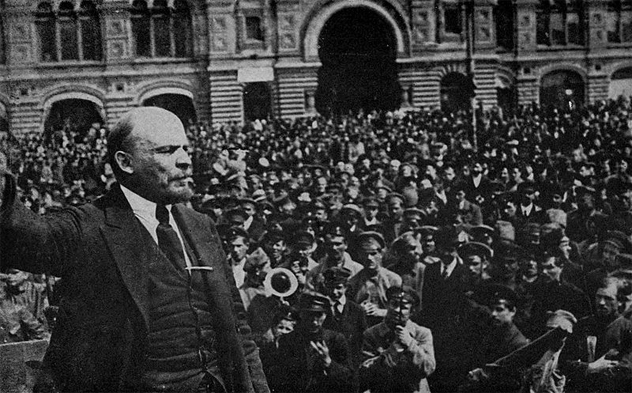
Brazil, 1895. Macaws screeched in the trees as a group of English explorers set up camp in a jungle clearing. Suddenly, a band of ferocious cannibals burst from the undergrowth. The explorers were paralyzed with fear, but their 19-year-old cook swung into action. Seizing a revolver, he shot the cannibals dead and saved the day. Impressed, the leader of the expedition immediately rewarded him with $1,500 and a British passport.
At least, that’s the story Sidney Reilly told, and it illustrates one important fact about Britain’s legendary “Ace of Spies”—he was a compulsive liar. In reality, Reilly was born Georgi Rosenblum in what is now Ukraine. He probably arrived in England in 1895, after robbing and murdering two Italian anarchists in Paris. There, he made himself a small fortune by seducing a wealthy Englishwoman, murdering her husband, and disguising himself as a doctor to certify the death as natural. It was during this time that he apparently began working as a spy for British intelligence chief William Melville.
In 1904, Reilly and his new wife resurfaced in the Far East, then consumed by the Russo-Japanese War. Reilly worked as a double agent for the British and Japanese, while simultaneously selling weapons to the Russians. At one point, he claimed to have stolen the Russian defense plans and smuggled them to the Japanese. Later that year, he may have played a key role in obtaining Persian oil rights for the British government rather than the Rothschilds.
In 1909, it was almost certainly Reilly who went undercover to steal weapons plans from a German factory (strangling a foreman in the process). During World War I he claimed to have infiltrated the German High Command, and while this was almost certainly untrue, he did do something that earned him the Military Cross.
After the war, Reilly was sent to Russia, where he began to plot his most daring scheme yet—assassinating Vladimir Lenin and overthrowing the newly communist Soviet Union. Discontented members of the rifle regiment that guarded the Kremlin were bribed or persuaded to join the coup, and the date was set for the first week of September. Then, just days before the coup was scheduled, the operation was betrayed to the Russian secret police. Reilly’s partner was killed in a fierce gun battle after Soviet troops stormed the British embassy, and the “Ace of Spies” himself escaped across the Finnish border disguised as a secretary.
The British broke off contact with Reilly in 1921, after deciding he was untrustworthy, but he continued to carry out freelance operations until 1925, when he was lured back to Russia by a supposed rebel group. The rebels turned out to be a Soviet front and Reilly was seized, tortured, and executed. While he was imprisoned, Reilly was actually making secret notes on Soviet interrogation techniques, thinking he could sell them if he escaped. He never got the chance.
Alex has also written for Cracked.com. If you enjoy being vaguely underwhelmed you can follow him on his shiny new twitter.



